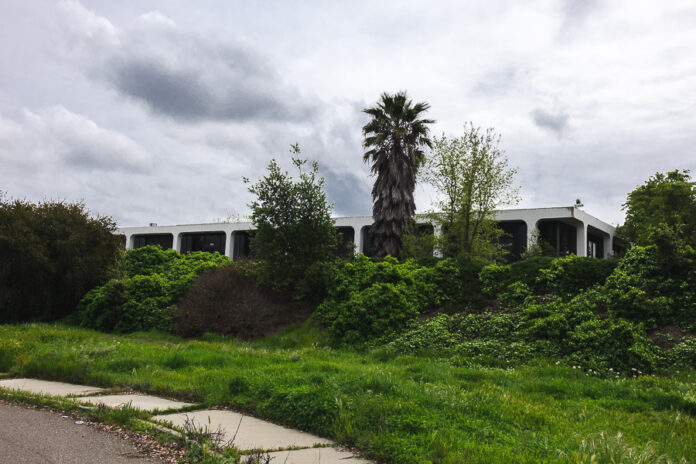With widespread support from community members, city officials vote unanimously to begin construction on apartment complex for Davis workforce
On March 19, The Davis City Council voted unanimously to give the green light to the Chiles workforce housing program. This action effectively approved plans for an apartment complex geared toward working families rather than students.
The 3820 Chiles Rd. project is unique among recent housing proposals in Davis — unlike most of the other projects that have been presented to the council in the past few years, the development will be specifically oriented to meet the housing needs of working families and professionals. City planner Eric Lee called the proposed housing a “more traditional type of rental housing project,” contrasting the future workforce-oriented apartments with other recent projects aimed at the city’s growing student population.
“Obviously, we’ve seen a number of student-related or student-oriented projects for local projects, but we have not seen one like this for a while,” Eric Lee said.
Rather than renting out rooms or beds — as student housing typically does — the 225 new apartments in the Chiles complex will rent by 1-, 2- and 3-bedroom units. By doing so, city officials and developers hope this project will primarily serve the needs of workers, professionals and families seeking to live in Davis, rather than students. Mayor Brett Lee noted that the Davis workforce population has been underserved by recent housing development in the city.
“[The Chiles project] fulfills a need that we haven’t really addressed recently, and that is for a more traditional configuration of the apartment complex,” Brett Lee said. “This type of configuration is available to a wider variety of folks rather than the student-oriented configuration.”
The project is also unique in its approach to the city’s affordable housing regulations. Davis municipal codes previously dictated that high-volume rental housing must include units set aside for low-income renters or contribute fees or dedicated land in lieu of affordable units.
But developers proposed an alternative to meet the city’s affordable housing requirements — instead of including the required affordable units, the new housing will donate a portion of its rental revenue to the city’s program.
According to Eric Lee, 1.65 percent of rental income from the Chiles apartments will be donated to the city’s Housing Trust Fund, with a minimum yearly payment of $100,000. The money generated by the complex would be used to fund future affordable housing projects within the city. Before approving the Chiles project, City Council voted to amend the city’s affordable housing code to allow for the project to move forward.
The South Davis land where the complex will be built is currently occupied by a vacant office building. During the meeting, some members of the public expressed pleasure that the new housing development would revitalize the unused property. South Davis resident Eric Johnson praised city officials redesignating the zoning of the lot from commercial to residential.
“This is an ideal site for workforce housing, compared to the current zoning, which would likely yield more freeway-based commercial business,” Johnson said. “Workforce housing is much more conducive to the neighborhood that borders the site, compared to the typical gas stations, convenience stores and fast-food chains that are typically found within the current zoning and proximity to freeways.”
Indeed, another notable aspect of the Chiles workforce housing project is the apparent lack of public resistance to it. While the development of other Davis housing projects like the West Davis Active Adult Community and Nishi Student Apartments have been delayed by public controversy and community opposition, the Chiles project seems to enjoy widespread support among city residents. There was no organized public opposition during the meeting or other parts of the planning phase. Linda Deos, a community member who ran for City Council in 2018, commented on the unusual lack of push-back throughout the approval process.
“I’m thrilled that there is — as far as I can tell — no organized neighborhood opposition to the project, and that’s thrilling and quite nice to see,” Deos said.
Mary Jo Bryan, a community member who said she has been involved with Davis housing issues for some time, commended the developers on their efforts to provide housing for working families.
“I believe [the development team] is building for the future of Davis,” Bryan said. “They observed and listened to the people of Davis, and they have developed a project that will provide much-needed workforce and family housing.”
Written by: Tim Lalonde — city@theaggie.org





